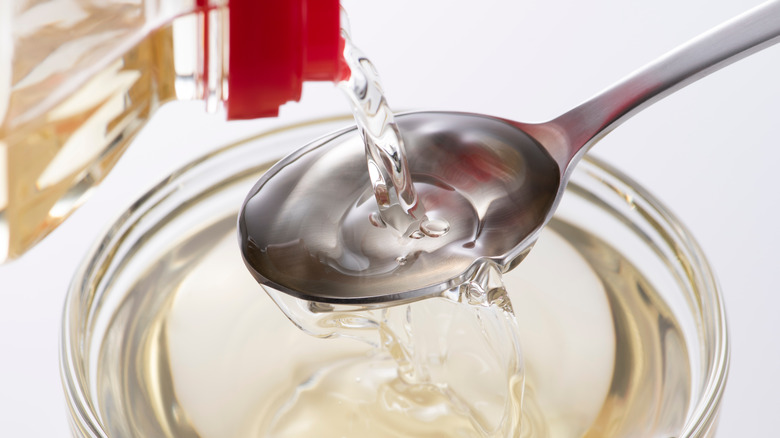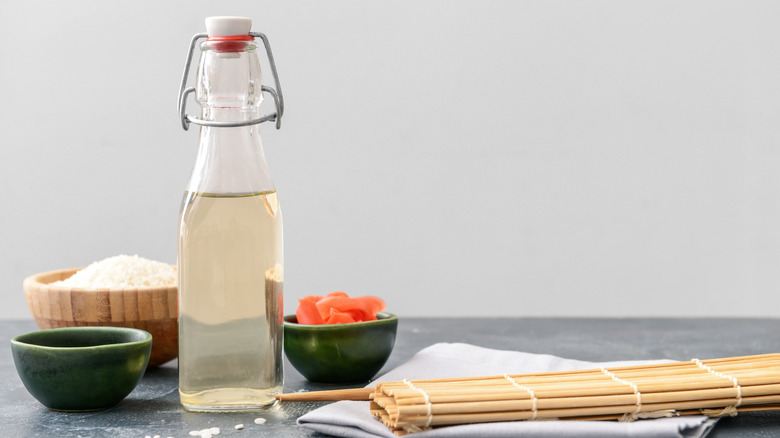The Ingredient You Can Use In Place Of Mirin
Most home cooks love experimenting in the kitchen. Whether that's by trying a new technique or attempting to make a dish from a different culture, it's always enjoyable to stretch one's creativity by trying new things. Japanese cuisine is rewarding to make because it gives you the opportunity to use ingredients like sesame oil, fish sauce, miso, and mirin. However, not all cooks have these Asian staples stocked in their pantries. But, when you've pulled out a recipe, it can be helpful to know what substitutions to make when your pantry stock is short.
Mirin, a sweet Japanese rice wine, is commonly used in Japanese cuisine and is essential for glazes, dressings, marinades, and sauces like teriyaki sauce. According to Food Network, mirin is often used to compose the sauce in various Japanese dishes, "including noodles, sashimi, tonkatsu, and tempura." However, if you don't have a grocery store with an Asian food section near you, you may have to turn to substitutions to get that sugary yet sake-like flavor. There are many replacements for mirin that will come in handy and not adversely affect your dishes' flavors.
Rice wine vinegar is the best replacement
According to CookingLight, rice wine vinegar replicates mirin's sweet and tangy flavor well. Both products are fermented and therefore have a layered taste. It works perfectly in place of mirin for certain condiments, like salad dressings or marinades. However, mirin is still sweeter than rice wine vinegar and almost syrupy in consistency, so a bit of sugar should be mixed into the vinegar before adding it as a replacement. The site says to add about a 1/2 teaspoon of sugar per tablespoon of rice wine vinegar for a suitable substitute.
Verywell Fit notes that rice wine vinegar (even with the added sugar) is a healthier option than mirin. Rice wine vinegar also has no calories or sodium, while 1 tablespoon of mirin has 35 calories (via Nutrifox). There are other options, such as sake, dry sherry, and dry white wine, that can also replace mirin, according to Food52, but as always, it is best to experiment to find what you prefer in your cooking.

